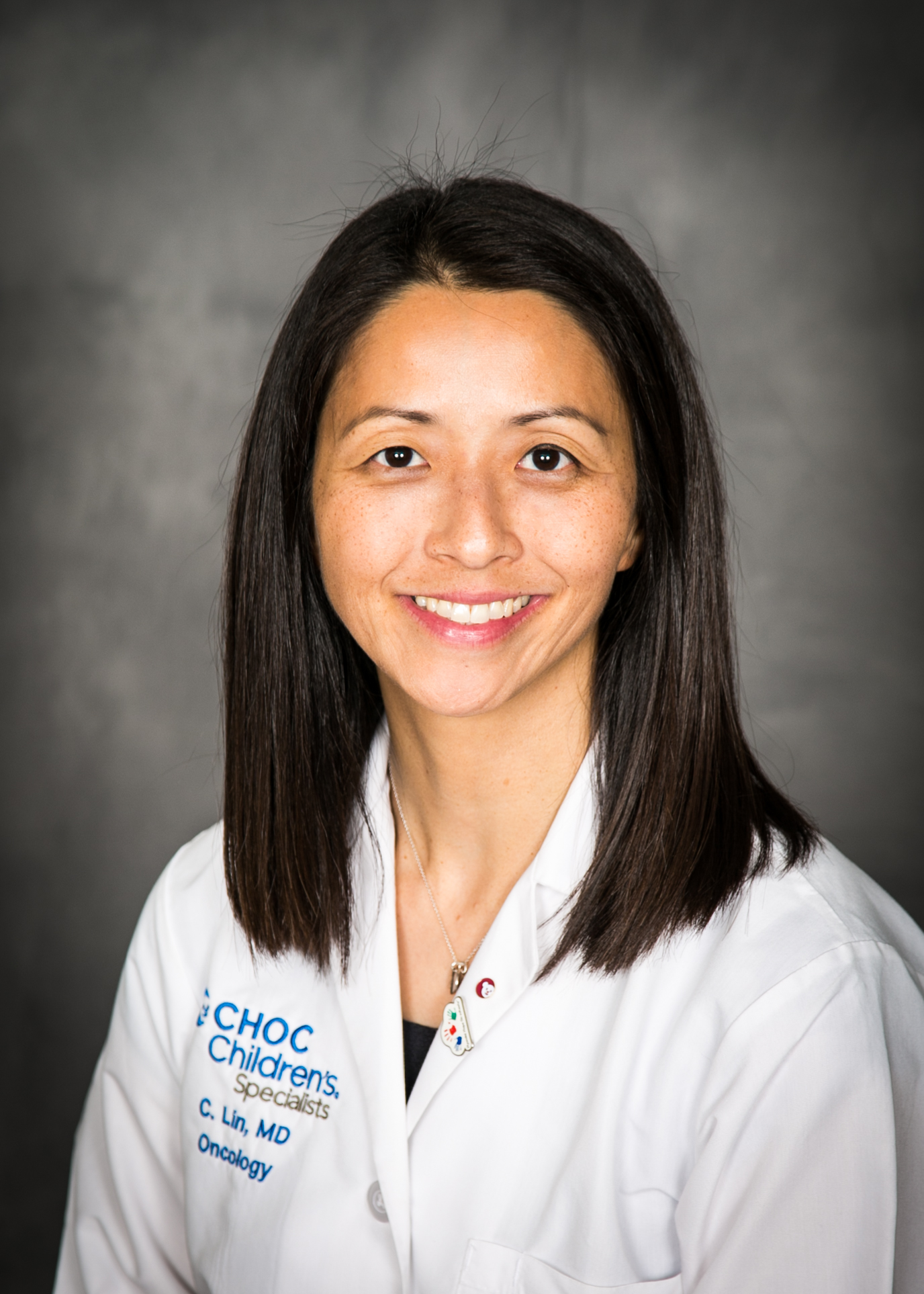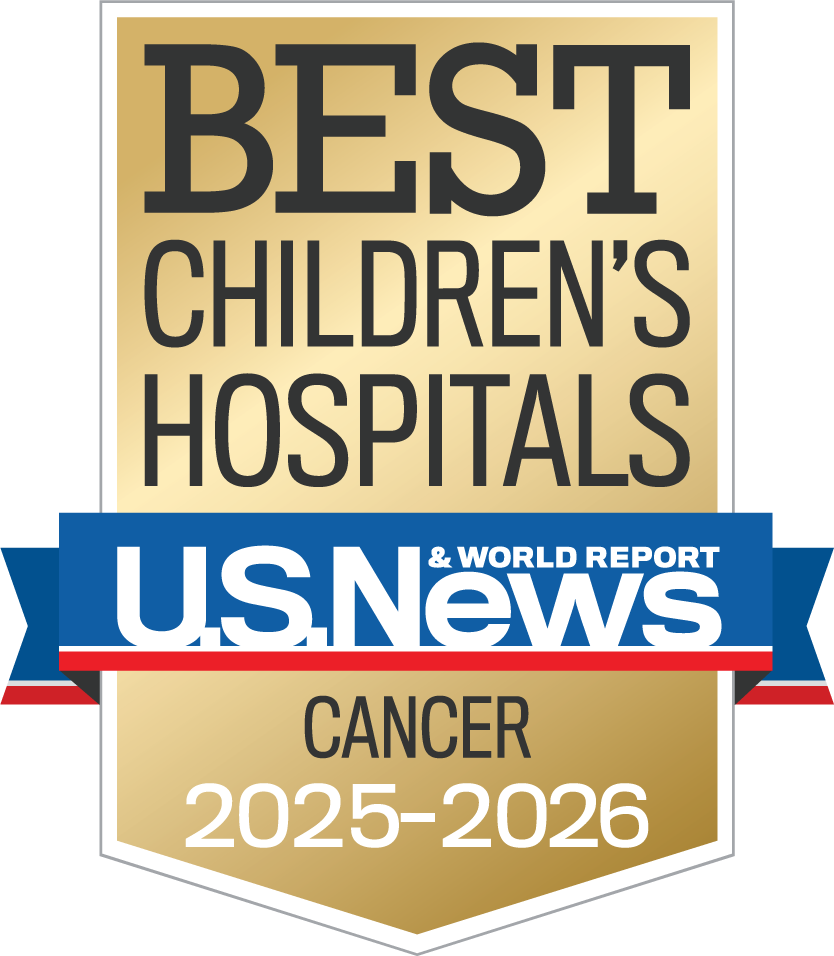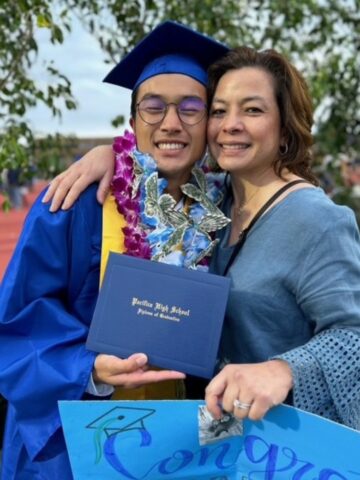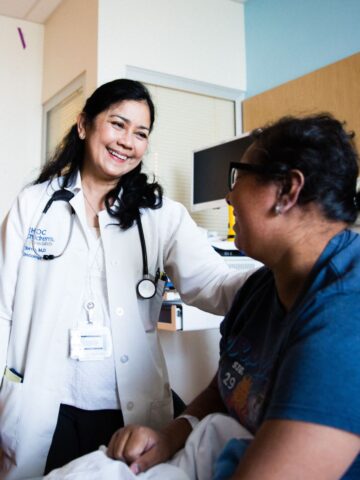CHOC is participating in an innovative ongoing study in collaboration with Lurie Children’s Hospital of Chicago. The study, Ovarian Tissue Cryopreservation for Fertility Preservation in Pre- and Post-Pubertal Children Facing a Fertility Threatening Diagnosis or Treatment Regimen, aims to bring ovarian tissue cryopreservation (OTC) with transplantation and/or in vitro follicle maturation to more children. Currently, CHOC is one of two hospitals offering OTC in Southern California.
“At diagnosis, patients and families may be focused on the disease more than its impact on fertility,” says Dr. Carol Lin, pediatric oncologist at the Hyundai Cancer Institute at CHOC. “We know from research that some parents and families regret not having a deeper discussion about the possible ways to preserve fertility at the time of diagnosis. We as clinicians need to be better educators upfront, making sure our families understand the risk of infertility with their treatment plan and methods to potentially preserve fertility.”

Among childhood cancer survivors aged 20 to 39, three-fourths will experience long-term treatment side effects. Compared to their siblings, those who survive childhood cancer are 20% less likely to achieve pregnancy. Compared to age-matched peers who do not experience childhood cancer, childhood cancer survivors achieve pregnancy 38% less frequently.
Proven success
When thawed and grafted into the host patient, cryopreserved ovarian tissue successfully restores ovarian activity in more than 95% of cases. The first such transplant resulted in spontaneous pregnancy three months post-transplant. Since then, more than 130 live births have been reported by patients who utilized OTC.
“When the first ovarian cryopreservation study opened at CHOC in 2009, the patients whose tissue was preserved had not utilized it yet to create live births,” says study co-investigator Lisa Klimpel, pediatric nurse practitioner at CHOC. “Now, we’re seeing the benefit of those studies from women at multiple sites who successfully had live births after OTC.”

In 2019, the American Society for Reproductive Medicine published that OTC was found efficacious and safe. As a result, it is no longer considered experimental treatment. Instead, it is now a standard of care for fertility preservation among young patients.
This designation led to California passing Senate Bill No. 600 (SB-600) requiring insurance companies to cover OTC. As the bill states, “when a covered treatment may cause iatrogenic infertility to an enrollee, standard fertility preservation services are a basic health care service.”
Preserving fertility in young patients
To improve post-treatment pregnancy rates in females, pediatric oncologists traditionally shield the ovaries from radiation. To address this method’s shortcomings, in vitro fertilization became available for pediatric applications. Unfortunately, IVF is not possible among the youngest patients, as they lack eggs necessary for harvesting. IVF is also impossible for patients whose disease requires immediate treatment, due to time limitations. For these young females, OTC with subsequent transplantation and/or in vitro follicle maturation offers an innovative option with positive results.
Candidates for OTC must meet the following criteria:
- Females younger than 30 years of age, pre-pubertal and post-pubertal patients
- Scheduled for imminent surgery, chemotherapy or radiation therapy that carries risk of complete loss of ovarian function
- Possess two healthy ovaries at time of surgery
- Able to tolerate three days recovery after laparoscopic oophorectomy, prior to undergoing prescribed cancer treatment
- Unable or unwilling to utilize embryo or oocyte banking
Exclusion criteria would include pre-existing conditions that increase the risk for complications, inability to provide informed consent or assent, or having a large mass in the ovary from which tissue would be removed for cryopreservation.
Range of oncofertility services
Providing oncofertility services requires a multidisciplinary approach with a singular goal. Specialties represented in CHOC’s Oncofertility Program include oncology, endocrinology, general surgery, reproductive endocrinology and fertility (REI), gynecology and urology.
In addition to OTC, CHOC provides fertility preservation for male patients, including testicular tissue cryopreservation, which is currently in the research phase. As such, CHOC has an open protocol for this emerging treatment in partnership with the University of Pittsburgh.
“We’re strong advocates of fertility research, and partnering with other collaborators enables us to go further with our research,” Dr. Lin says.
To that end, Dr. Lin and Ms. Klimpel are members of the Oncofertility Consortium, an international interdisciplinary initiative designed to explore the reproductive future of cancer survivors. By participating in the organization, Dr. Lin and Ms. Klimpel are helping to grow the knowledge base of oncofertility through establishing best practices and performing ongoing research.

CHOC Hospital was named one of the nation’s best children’s hospitals by U.S. News & World Report in its 2025-26 Best Children’s Hospitals rankings and ranked in the cancer specialty.




